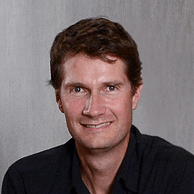
David Gesbert
Director of Eurecom
Sophia Antipolis, France
Robot-augmented data harvesting, sensing, and localization for 6G networks Download
Bio:
David Gesbert is Professor and Director of EURECOM, Sophia Antipolis, France. He previously headed the Communications Systems Department of EURECOM. Within his area of research, he welcomes collaboration with brilliant students and passionate researchers in the fields of communication theory, signal processing for (wireless) networks, information theory, optimization and connected robotics. He has previously been named in the Thomson-Reuters List of Highly Cited Researchers in Computer Science. He is a Fellow of IEEE. He is a Board member for the OpenAirInterface (OAI) Software Alliance. He also held an Advanced ERC grant on the topic of Smart Device Communications. Since 2020, he holds a 3IA Chair funded on the topic of AI for future IoT Networks.
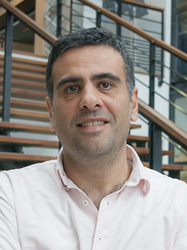
Petros Elia
Professor at the Communication systems, Eurecom
Sophia Antipolis, France
VoD Folding in Networks Download
Bio:
Petros Elia received the B.Sc. degree from the Illinois Institute of Technology and the M.Sc. and Ph.D. degrees in electrical engineering from the University of Southern California (USC), Los Angeles, in 2001 and 2006, respectively. He is currently a Professor with the Department of Communication Systems at EURECOM, Sophia Antipolis, France. His research interests include coded caching and feedback-aided communications in multiuser settings. He has also worked in the area of complexity-constrained communications, MIMO, queuing theory and cross-layer design, coding theory, information theoretic limits in cooperative communications, and surveillance networks. He is a Fulbright Scholar, a co-recipient of the NEWCOM++ Distinguished Achievement Award from 2008 to 2011 for a sequence of publications on the topic of complexity in wireless communications, and a recipient of the ERC Consolidator Grant from 2017 to 2022 on cache-aided wireless communications and the ERC-PoC from 2022 to 2024.
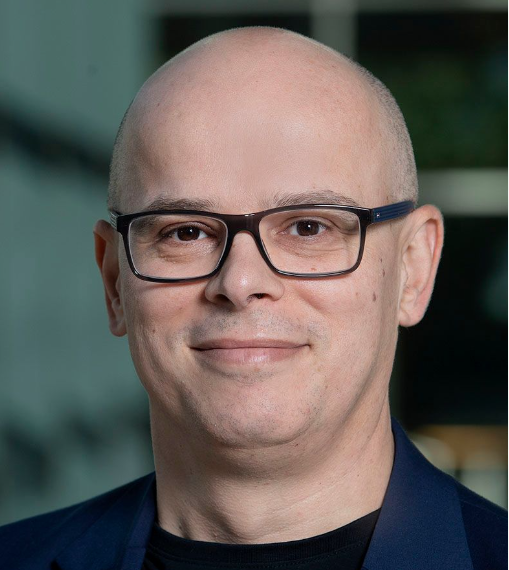
Petar Popovski
Professor,
Aalborg University, Denmark
On Goal-Oriented Communications with Queries
Bio:
Petar Popovski is a Professor at Aalborg University, where he heads the section on Connectivity and a Visiting Excellence Chair at the University of Bremen. He received his Dipl.-Ing and M. Sc. degrees in communication engineering from the University of Sts. Cyril and Methodius in Skopje and the Ph.D. degree from Aalborg University in 2005. He is a Fellow of the IEEE. He received an ERC Consolidator Grant (2015), the Danish Elite Researcher award (2016), IEEE Fred W. Ellersick prize (2016), IEEE Stephen O. Rice prize (2018), Technical Achievement Award from the IEEE Technical Committee on Smart Grid Communications (2019), the Danish Telecommunication Prize (2020) and Villum Investigator Grant (2021). He is currently the Editor-in-Chief of IEEEE JOURNAL ON SELECTED AREAS IN COMMUNICATIONS and Chair of the IEEE Communication Theory Technical Committee (CTTC). He authored the book ``Wireless Connectivity: An Intuitive and Fundamental Guide'', published by Wiley in 2020. His research interests are in communication theory and wireless connectivity.

Xavier Costa-Pérez
ICREA RESEARCH PROFESSOR
Spain
AI-driven O-RAN for 6G Systems: A Match Made in Heaven?
Bio:
Xavier Costa-Pérez is ICREA Research Professor, Scientific Director at the i2cat Research Center and Head of 5G/6G Networks R&D at NEC Laboratories Europe. His research focuses on the digital transformation of society driven by the interplay of mobile networks and AI. His team generates research results which are regularly published at top scientific venues, produces innovations which have received several awards for successful technology transfers, participates in major European Commission R&D collaborative projects and contributes to standardization bodies such as 3GPP, O-RAN, ETSI NFV/MEC/RIS and IETF. Xavier has experience raising funding both internally inside a company as well as externally in competitive public R&D programs. He has held multipe leadership positions both in industry and research organizations such as Deputy General Manager, Chief Researcher, Technology Board member and Scientific Advisory Board Member. As a standards delegate, he contributed to multiple standardization bodies (e.g. IEEE 802.11, 802.16, WiFi Alliance, 3GPP, ...) and was recognized in several standards as a top contributor. He has served on the Organizing Committees of several conferences (including ACM MOBICOM, IEEE INFOCOM, WCNC and Greencom), published papers of high impact and holds tens of granted patents. Currently, he is serving as Editor at IEEE Transactions on Mobile Computing (TMC) and Elsevier Computer Communications journals (COMCOM). Xavier received both his M.Sc. and Ph.D. degrees in Telecommunications from the Polytechnic University of Catalonia (UPC) in Barcelona and was the recipient of a national award for his Ph.D. thesis.

Ana Perez
Centre Tecnològic de Telecomunicacions de Catalunya
Spain
The revolution of New Space towards next G communication networks Download
Bio:
Ana I. Pérez-Neira (Fellow, IEEE) has been a Full Professor at the Signal Theory and Communication Department, Universitat Politécnica de Catalunya, since 2006. She was a Vice Rector for Research (2010–2014). She is currently the Director of the Centre Tecnológic de Telecomunicacions de Catalunya, Spain. She is the Coordinator of the Networks of Excellence on Satellite Communications, financed by the European Space Agency: SatnexIV-V. She has more than 60 journal articles and 300 conference papers. She is a coauthor of seven books. She has leaded more than 20 projects and holds eight patents. Her research interest includes signal processing for communications, focused on satellite communications. She is a member of the BoG of the IEEE SPS and the Vice-President for conferences (2021–2023). She is also a member of the Real Academy of Science and Arts of Barcelona (RACAB). She was a recipient of the 2018 EURASIP Society Award. In 2020, she has awarded the ICREA Academia Distinction by the Catalan Government. She has been the General Chair of the IEEE ICASSP 2020 (the first big IEEE virtual conference held by IEEE with more than 15.000 attendees). She has been an Associate Editor of the IEEE Transactions on Signal Processing, EURASIP SP, and EURASIP ASP. She is a Senior Area Editor of the IEEE Open Journal of Signal Processing.
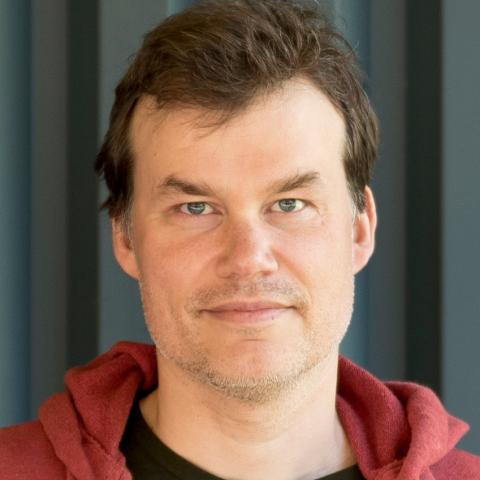
Antti Tölli
University of Oulu
Finland
Enhancing Extended Reality Experience with Location-Dependent Multiantenna Coded Caching Download
Bio:
Antti Tölli (Senior Member, IEEE) received the Dr.Sc. (Tech.) degree in electrical engineering from the University of Oulu, Oulu, Finland, in 2008. From 1998 to 2003, he worked as a Research Engineer and the Project Manager at Nokia Networks, Finland and Spain. In May 2014, he was granted a five-year (2014–2019) Academy Research Fellow post with the Academy of Finland. During the academic year from 2015 to 2016, he visited EURECOM, Sophia Antipolis, France, while from August 2018 to June 2019, he visited the University of California at Santa Barbara, Santa Barbara, CA, USA. He is currently a Professor with the Centre for Wireless Communications (CWC), University of Oulu. He has authored numerous papers in peer-reviewed international journals and conferences and several patents, all in signal processing and wireless communications. His research interests include radio resource management and transceiver design for broadband wireless communications, with a special emphasis on distributed interference management in heterogeneous wireless networks. From 2017 to 2021, he served as an Associate Editor for IEEE Transactions on Signal Processing.(
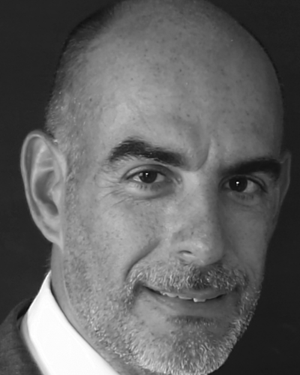
Stefano Buzzi
University of Cassino and Lazio Meridionale
Italy
Integrated Sensing and Communications aided by Reconfigurable Intelligent Surfaces Download
Bio:
Stefano Buzzi (Senior Member, IEEE) received the M.Sc. degree (summa cum laude) in electronic engineering and the Ph.D. degree in electrical and computer engineering from the University of Naples “Federico II,” in 1994 and 1999, respectively. He had short-term research appointments at Princeton University, Princeton, NJ, USA, in 1999, 2000, 2001, and 2006. He joined as an Assistant Professor at the University of Cassino and Lazio Meridionale, Italy, in 2000, and an Associate Professor, from 2002 to 2018, where he has been a Full Professor, since 2018. He is currently the Principal Investigator of the EU-Funded Innovative Training Network Project METAWIRELESS, on the application of metasurfaces to wireless communications. He has coauthored about 170 technical peer-reviewed journals and conference papers, and, among these, the highly cited paper “What will 5G be?”, IEEE Journal on Selected Areas in Communications (JSAC), in June 2014. His research interests include communications and signal processing, with emphasis on wireless communications and beyond-5G systems. He serves regularly as a TPC member of several international conferences. He was an Associate Editor of the IEEE Signal Processing Letters and the IEEE Communications Letters. He was the Guest Editor of four IEEE Journal on Selected Areas in Communications (JSAC) special issues and from 2014 to 2020, he was an Editor for the IEEE Transactions on Wireless Communications.
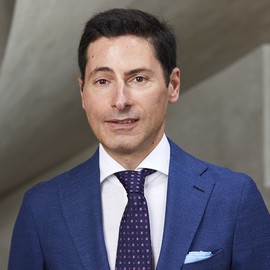
Carlo Fischione
KTH Royal Institute of Technology
Sweden
Computing Machine Learning and Other Functions Over-the-Air Using Digital Modulations Download
Bio:
Dr. Carlo Fischione is full Professor at KTH Royal Institute of Technology, Electrical Engineering and Computer Science, Division of Network and Systems Engineering, Stockholm, Sweden. He is Director of the KTH-Ericsson Data Science Micro Degree Program directed to Ericsson globally, and Chair of the IEEE Machine Learning for Communications Emerging Technologies Initiative. He is distinguished lecturer of the IEEE Communication Society, and founding Chair of the IEEE International Conference on Machine Learning for Communication and Networking. He received the Ph.D. degree in Electrical and Information Engineering (3/3 years) in May 2005 and the Laurea degree in Electronic Engineering (Laurea, Summa cum Laude, 5/5 years) in April 2001, both from University of L’Aquila, Italy, He has held research positions at Massachusetts Institute of Technology, Cambridge, MA (2015, Visiting Professor); Harvard University, Cambridge, MA (2015, Associate); and University of California at Berkeley, CA (2004-2005, Visiting Scholar, and 2007-2008, Research Associate). He is Honorary Professor at University of L’Aquila, Italy, Department of Mathematics, Information Engineering, and Computer Science. His research interests include applied optimization, wireless, sensor networks, Internet of things, and machine learning. He received a number of awards, such as the “IEEE Communication Society S. O. Rice” award for the best IEEE Transactions on Communications paper of 2018, the best paper award of IEEE Transactions on Industrial Informatics (2007). He is Editor of IEEE Transactions on Communications (Machine Learning for Communications area) and IEEE Transactions on Machine Learning for Communication and Networking, and has been serving as Associated Editor of IFAC Automatica (2014-2019). He is co-founder and scientific advisor of ELK.Audio. He is Member of IEEE (the Institute of Electrical and Electronic Engineers), and Ordinary Member of DASP (the Italian academy of history Deputazione Abruzzese di Storia Patria).

Giovanni Geraci
Telefonica Research and UPF Barcelona
Spain
What will it take for wireless communications to conquer the sky? Download
Bio:
Giovanni Geraci is a Principal Research Scientist at Telefonica and an Associate Professor and the Head of Telecommunications at Univ. Pompeu Fabra in Barcelona. He was previously with Nokia Bell Labs and holds a dozen patents on wireless technologies. He has been serving as Distinguished Lecturer for two IEEE societies and co-authored two IEEE ComSoc Best Readings, including the book “UAV Communications for 5G and Beyond” by Wiley. Giovanni received the IEEE ComSoc EMEA Outstanding Young Researcher Award as well as Best Paper Awards at IEEE PIMRC’19 and IEEE Globecom’22.

Björn Ottersten
University of Luxembourg
Luxembourg
Low-Earth Orbit Satellite Constellations – A game-changer for global connectivity?
Bio:
Björn Ottersten received the M.S. degree in electrical engineering and applied physics from Linköping University, Linköping, Sweden, in 1986, and the Ph.D. degree in electrical engineering from Stanford University, Stanford, CA, USA, in 1990. He has held research positions with the Department of Electrical Engineering, Linköping University, the Information Systems Laboratory, Stanford University, the Katholieke Universiteit Leuven, Leuven, Belgium, and the University of Luxembourg, Luxembourg. From 1996 to 1997, he was the Director of Research with ArrayComm, Inc., a start-up in San Jose, CA, USA, based on his patented technology. In 1991, he was appointed Professor of signal processing with the Royal Institute of Technology (KTH), Stockholm, Sweden. Dr. Ottersten has been Head of the Department for Signals, Sensors, and Systems, KTH, and Dean of the School of Electrical Engineering, KTH. He is the founding Director for the Interdisciplinary Centre for Security, Reliability and Trust, University of Luxembourg. He is a recipient of the IEEE Signal Processing Society Technical Achievement Award, the EURASIP Group Technical Achievement Award, and the European Research Council (ERC) advanced research grant twice. He has co-authored journal papers that received the IEEE Signal Processing Society Best Paper Award in 1993, 2001, 2006, 2013, and 2019, and 9 IEEE conference papers best paper awards. He has been a board member of IEEE Signal Processing Society, the Swedish Research Council and currently serves of the boards of EURASIP and the Swedish Foundation for Strategic Research as well as on the ERC Scientific Council. Dr. Ottersten has served as Editor in Chief of EURASIP Signal Processing, and acted on the editorial boards of IEEE Transactions on Signal Processing, IEEE Signal Processing Magazine, IEEE Open Journal for Signal Processing, EURASIP Journal of Advances in Signal Processing and Foundations and Trends in Signal Processing. He is a fellow of IEEE, EURASIP, and AAIA.
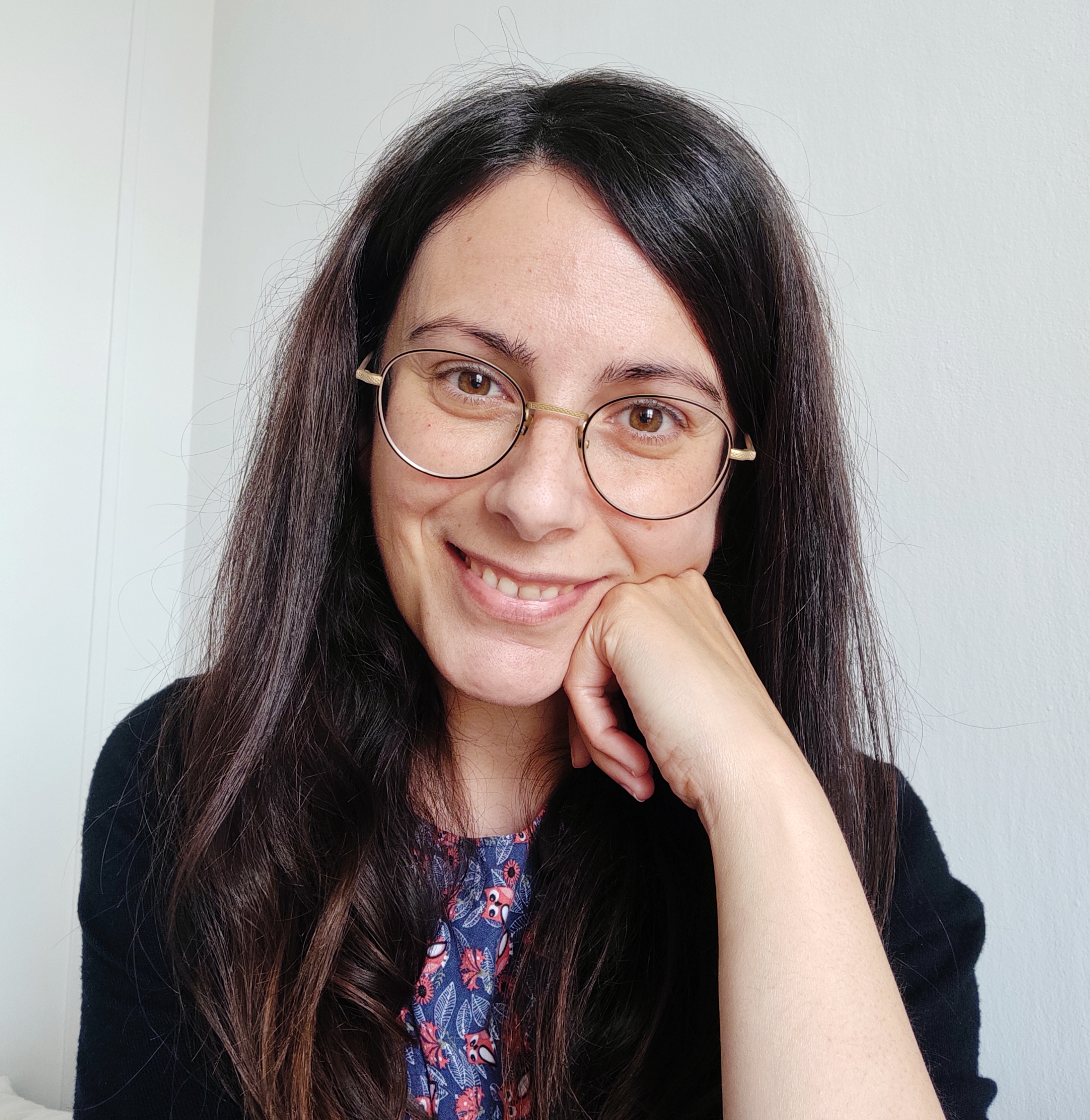
Cristina Cano
Universitat Oberta de Catalunya
Spain
Panel: The environmental sustainability of 6G Download
Bio:
She held a Ph.D. (2011) in Information, Communication, and Audiovisual Media Technologies from the Universitat Pompeu Fabra (UPF). She was a research fellow in the Hamilton Institute of the National University of Ireland, Maynooth (2012-2014), in Trinity College Dublin (2015-2016), and in Inria-Lille in France (first half of 2016). Currently, she is an associate professor at the Faculty of Computer Science and Telecommunications of the Universitat Oberta de Catalunya (UOC), where she mainly teaches math courses. She is also a research member of the WINE group at UOC. She appeared in the inaugural list "Rising Stars in Networking/Communications" of the N2Women organization, and she has published 20 JCR journals and more than 30 conference articles. Her research interests include the coexistence of wireless heterogeneous networks and distributed resource allocation. Recently, she has become interested in political ecology and science and technology studies, trying to understand the intertwining of the social and the technological in the development of wireless networks, with a special interest in the environmental impact of mobile networks.
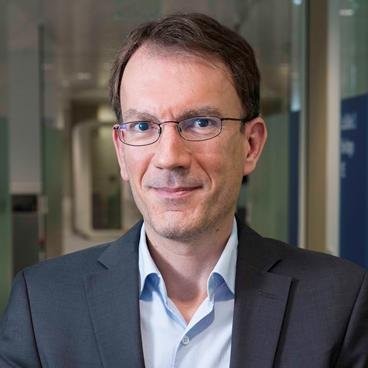
Eric Hardouin
VP, Networks and Infrastructures Research, Orange Labs
France
Panel: The environmental sustainability of 6G Download
Bio:
Eric Hardouin (S'02–M'05) received the Ph.D. degree in signal processing and telecommunications from the University of Rennes I, France, prepared at Telecom Bretagne, France, in 2004. Since 2004, he has been with Orange Labs, France, where he has conducted or supervised research on various physical layer or physical-Medium Access Control layer techniques for interference mitigation in mobile networks. Between April 2008 and March 2009, he led the Innovations work package of the Celtic project WINNER $+$, whose goal was to propose innovative radio techniques for IMT-Advanced systems. Between 2008 and 2013, he represented Orange in the physical layer standardization group of 3GPP (RAN WG1) for HSPA, LTE and LTE-Advanced. Since 2012, he coordinates the research on wireless networks in Orange Labs. He is the author of the book LTE et les réseaux 4G (Eyrolles, 2012, in French)
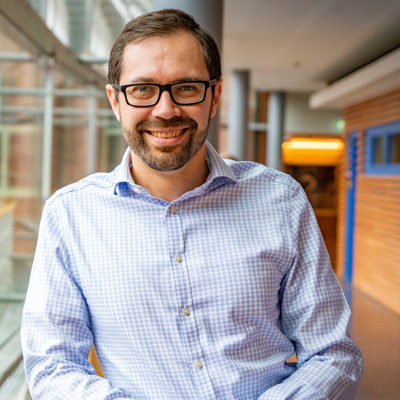
Henk Wymeersch
Chalmers University of Technology
Sweden
Radio Localization and Sensing towards 6G
Bio:
Henk Wymeersch obtained the Ph.D. degree in Electrical Engineering/Applied Sciences in 2005 from Ghent University, Belgium. He is currently a Professor of Communication Systems with the Department of Electrical Engineering at Chalmers University of Technology, Sweden. He is also a Distinguished Research Associate with Eindhoven University of Technology. Prior to joining Chalmers, he was a postdoctoral researcher from 2005 until 2009 with the Laboratory for Information and Decision Systems at the Massachusetts Institute of Technology. Prof. Wymeersch served as Associate Editor for IEEE Communication Letters (2009-2013), IEEE Transactions on Wireless Communications (since 2013), and IEEE Transactions on Communications (2016-2018) and is currently Senior Member of the IEEE Signal Processing Magazine Editorial Board. During 2019-2021, he was an IEEE Distinguished Lecturer with the Vehicular Technology Society. His current research interests include the convergence of communication and sensing, in a 5G and Beyond 5G context.
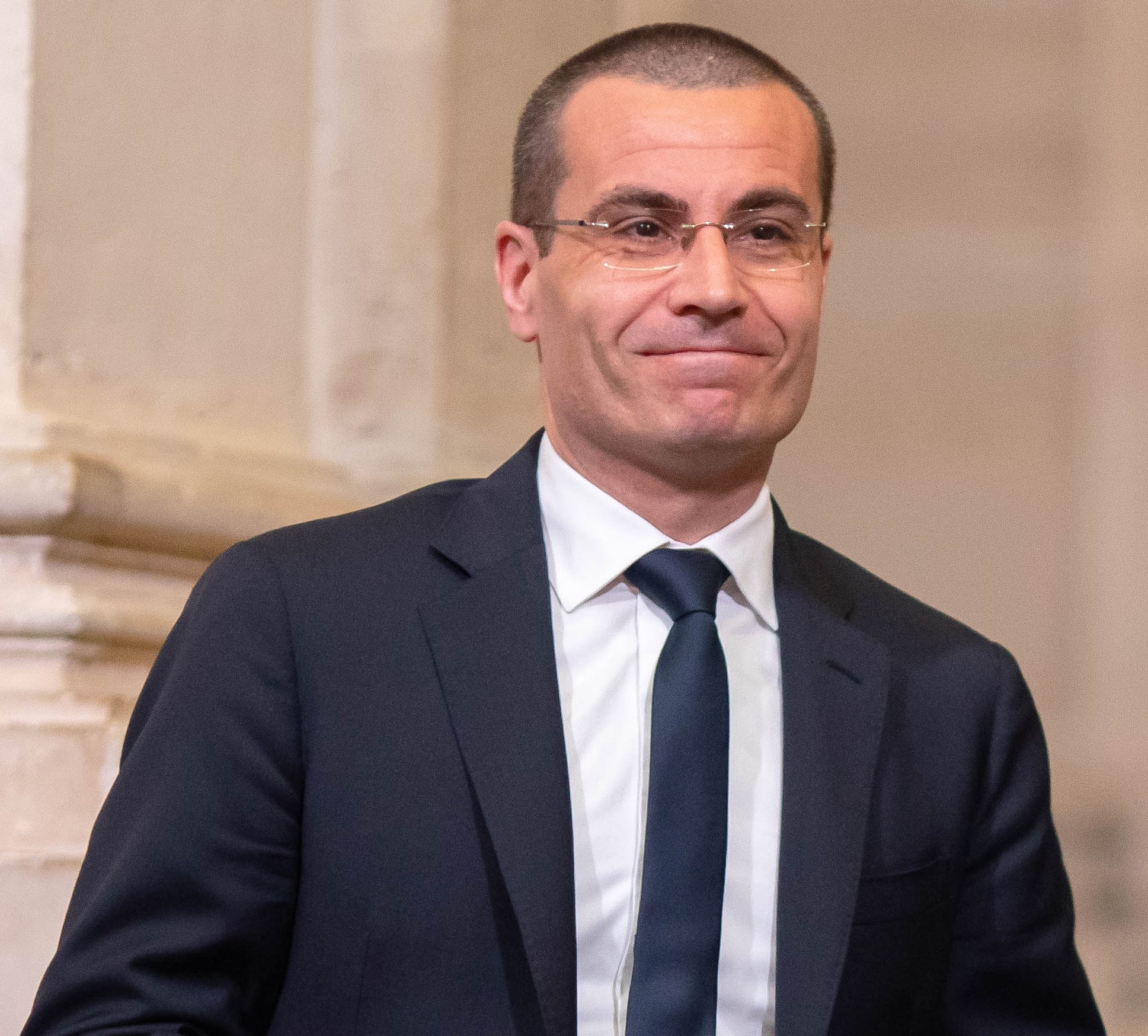
Marco di Renzo
University Paris-Saclay – CNRS and CentraleSupelec
Spatial Multiplexing in Near Field MIMO Channels with Reconfigurable Intelligent Surfaces Download
Bio:
Marco Di Renzo (Fellow, IEEE) received the Laurea (cum laude) and Ph.D. degrees in electrical engineering from the University of L’Aquila, Italy, in 2003 and 2007, respectively, and the Habilitation à Diriger des Recherches (Doctor of Science) degree from University Paris-Sud (currently Paris-Saclay University), France, in 2013. Currently, he is a CNRS Research Director (Professor) and the Head of the Intelligent Physical Communications group in the Laboratory of Signals and Systems (L2S) of Paris-Saclay University – CNRS and CentraleSupelec, Paris, France. At Paris-Saclay University, he serves as the Coordinator of the Communications and Networks Research Area of the Laboratory of Excellence DigiCosme, as a Member of the Admission and Evaluation Committee of the Ph.D. School on Information and Communication Technologies, and as a Member of the Evaluation Committee of the Graduate School in Computer Science. He is a Founding Member and the Academic Vice Chair of the Industry Specification Group (ISG) on Reconfigurable Intelligent Surfaces (RIS) within the European Telecommunications Standards Institute (ETSI), where he serves as the Rapporteur for the work item on communication models, channel models, and evaluation methodologies. He is a Fellow of the IEEE, IET, and AAIA; an Ordinary Member of the European Academy of Sciences and Arts, an Ordinary Member of the Academia Europaea; and a Highly Cited Researcher. Also, he holds the 2023 France-Nokia Chair of Excellence in ICT, and was a Fulbright Fellow at City University of New York, USA, a Nokia Foundation Visiting Professor, and a Royal Academy of Engineering Distinguished Visiting Fellow. His recent research awards include the 2021 EURASIP Best Paper Award, the 2022 IEEE COMSOC Outstanding Paper Award, the 2022 Michel Monpetit Prize conferred by the French Academy of Sciences, the 2023 EURASIP Best Paper Award, the 2023 IEEE COMSOC Fred W. Ellersick Prize, the 2023 IEEE COMSOC Heinrich Hertz Award, and the 2023 Best Paper Award at 2023 IEEE ICC. He serves as the Editor-in-Chief of IEEE Communications Letters.
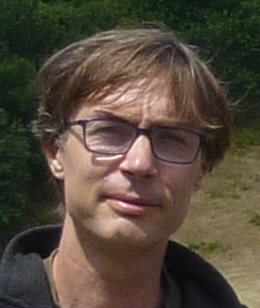
Philippe Ciblat
Telecom Paris
France
Panel: The environmental sustainability of 6G
Bio:
He was born in Paris, France, in 1973. He received the Engineering degree from Ecole Nationale Supérieure des Télécommunications (ENST, now called Telecom Paris) and the M.Sc. degree in automatic control and signal processing from Université Paris-Saclay, France, both in 1996, and the Ph.D. degree from Université Gustave Eiffel, France, in 2000. he eventually received the HDR degree from Université Gustave Eiffel, France, in 2007. In 2001, he was a Postdoctoral Researcher with the Université de Louvain, Belgium. At the end of 2001, he joined Telecom Paris, as an Associate Professor. Since 2011, he have been (full) Professor in the same institute. From 2009 to 2020, he was the head of Digital Communications Team. He served as Associate Editor for the IEEE Communications Letters from 2004 to 2007. From 2008 to 2012, he served as Associate Editor and then Senior Area Editor for the IEEE Transactions on Signal Processing. From 2014 to 2019, he was member of IEEE Technical Committee "Signal Processing for Communications and Networking". From 2018 to 2021, he served as Associate Editor for the IEEE Transactions on Signal and Information Processing over Networks. His research areas include statistical signal processing, signal processing for digital communications, resource allocation, distributed optimization, signal over graphs, machine learning, and carbon footprint analysis for ICT."
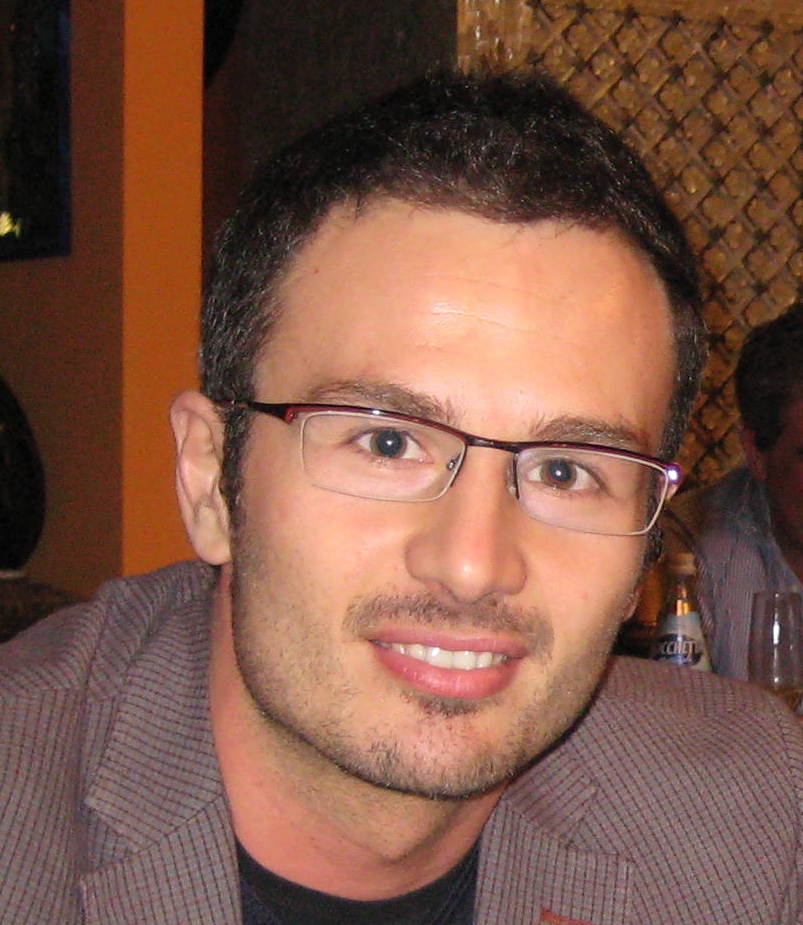
Luca Sanguinetti
Pisa University
Italy
Multiuser Holographic MIMO systems: What is the benefit of closely spaced antennas?
Bio:
Luca Sanguinetti (Senior Member, IEEE) received the Laurea Telecommunications Engineer degree (cum laude) and the Ph.D. degree in information engineering from the University of Pisa, Pisa, Italy, in 2002 and 2005, respectively. In 2004, he was a Visiting Ph.D. Student with the German Aerospace Center (DLR), Oberpfaffenhofen, Germany. During June 2007 – June 2008, he was a Postdoctoral Associate with the Department Electrical Engineering, Princeton, NJ, USA. From July 2013 to October 2017, he was with Large Systems and Networks Group (LANEAS), CentraleSupélec, France. He is currently an Associate Professor with the Dipartimento di Ingegneria dell'Informazione of the University of Pisa. He has coauthored the textbooks Massive MIMO Networks: Spectral, Energy, and Hardware Efficiency (2017) and Foundations on User-centric Cell-free Massive MIMO (2020). He was an Associate Editor for the IEEE Transactions on Wireless communications and IEEE Signal Processing Letters, and the Lead Guest Editor of the IEEE Journal on Selected Areas of Communications Special Issue on Game Theory for Networks and as an Associate Editor for the IEEE Journal on Selected Areas of Communications (series on Green Communications and Networking). He is currently an Associate Editor for the IEEE Transactions on Communications and is a Member of the Executive Editorial Committee of IEEE Transactions on Wireless Communications. His expertise and general interests include communications and signal processing. He was the recipient of the 2018 and 2022 Marconi Prize Paper Awards in Wireless Communications and coauthored a paper that received the Young Best Paper Award from the ComSoc/VTS Italy Section. He was the corecipient of Two Best Conference Paper Awards: IEEE WCNC 2013 and IEEE WCNC 2014. He was also the recipient of the FP7 Marie Curie IEF 2013 Dense deployments for green cellular networks.

Volker Ziegler
Nokia Bell Labs, 6G leadership, Chief Architect,
Munich, Germany
Path to Metaverse ready networks and 6G Download
Bio:
Volker is an energetic, strategic and purpose-driven leader with 25+ years of broad and international experience in the telecommunications industry. He currently serves as Senior Technology Advisor and Chief Architect in Nokia Strategy and Technology unit. Previously, Volker has exercised a leadership role with Nokia Bell Labs in 6G research and ecosystem. Prior to this, he has served as Head of 5G Leadership and Chief Architect of Nokia Mobile Networks.
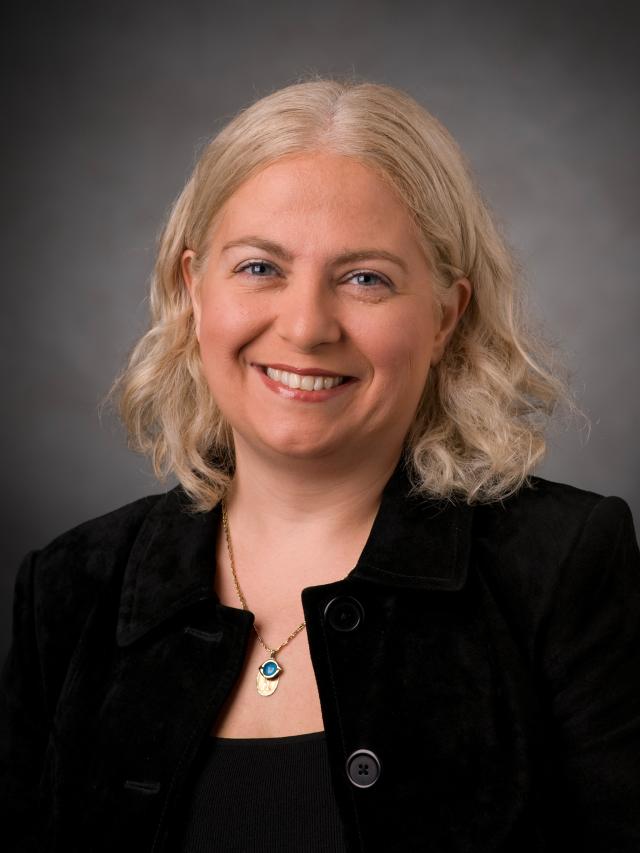
Aylin Yener
Ohio State University
USA
Semantic Text Classification for 6G and Beyond
Bio:
Aylin Yener (Fellow, IEEE) received the B.Sc. degree in electrical and electronics engineering and the B.Sc. degree in physics from Boğaziçi University, Istanbul, Turkey, and the M.S. and Ph.D. degrees in electrical and computer engineering from WINLAB, Rutgers University, New Brunswick, NJ, USA.,She is currently the Roy and Lois Chope Chair of engineering with The Ohio State University, Columbus, OH, USA, and a Professor of electrical and computer engineering, computer science and engineering, and integrated systems engineering. Prior to joining The Ohio State University in 2020, she was a University Distinguished Professor of electrical engineering and the Dean’s Fellow at The Pennsylvania State University, University Park, PA, USA, where she joined the Faculty as an Assistant Professor in 2002. She was a Visiting Professor of electrical engineering with Stanford University from 2016 to 2018 and a Visiting Associate Professor from 2008 to 2009 with the Department of Electrical Engineering. She was a Visiting Researcher with Telecom Paris Tech in 2016. Her current research interests include novel metrics and innovations for 6G and beyond, including semantic communications, information security and privacy of networked systems, green communications and computation, wireless distributed learning, and more generally in the fields of information theory, communication theory, and machine learning.,Dr. Yener is the Director-Elect of the IEEE Division IX for 2023. She is currently serving her last year (2022) on the Board of Governors of the IEEE Information Theory Society as its Past President. She was the President of the IEEE Information Theory Society in 2020. She was also the Vice President in 2019, the Second Vice President in 2018, an Elected Member of the Board of Governors from 2015 to 2018, and the Treasurer of the IEEE Information Theory Society from 2012 to 2014. She received the NSF CAREER Award in 2003, the Best Paper Award in Communication Theory from the IEEE International Conference on Communications in 2010, the Penn State Engineering Alumni Society (PSEAS) Outstanding Research Award in 2010, the IEEE Marconi Prize Paper Award in 2014, the PSEAS Premier Research Award in 2014, the Leonard A. Doggett Award for Outstanding Writing in Electrical Engineering at Penn State in 2014, the IEEE Women in Communications Engineering Outstanding Achievement Award in 2018, the IEEE Communications Society Best Tutorial Paper Award in 2019, and the IEEE Communications Society Communication Theory Technical Achievement Award in 2020. She was a Distinguished Lecturer of the IEEE Information Theory Society from 2019 to 2021, the IEEE Communications Society from 2018 to 2019, and the IEEE Vehicular Technology Society from 2017 To 2021. She served as the Student Committee Chair for the IEEE Information Theory Society from 2007 to 2011 and the Co-Founder of the Annual School of Information Theory in North America, in 2008. She is currently the Editor-in-Chief of the IEEE Transactions on Green Communications and Networking. She is on the Senior Editorial Board of IEEE Journal on Selected Areas in Communications and IEEE Journal on Selected Areas in Information Theory. She is also an Area Editor for Security and Privacy of the IEEE Transactions on Information Theory. She served as an Editor for IEEE Transactions on Communications from 2009 to 2012 and IEEE Transactions on Mobile Computing from 2017 to 2018, and an Editor and an Editorial Advisory Board Member for IEEE Transactions on Wireless Communications from 2001 to 2012. She also served as a Guest Editor for IEEE Transactions on Information Forensics and Security in 2011, IEEE Journal on Selected Areas in Communications in 2015 and 2022, and IEEE Journal on Selected Areas in Information Theory in 2021. She was the Technical Program Committee Chair for various symposia/tracks at the IEEE ICC, PIMRC, VTC, WCNC, and Asilomar in 2005, 2008–2014, and 2018, and ISIT in 2022.